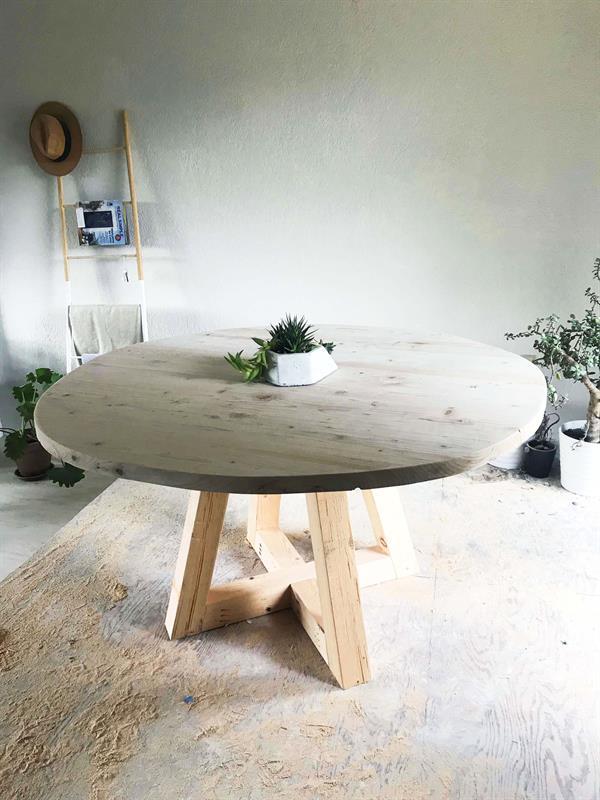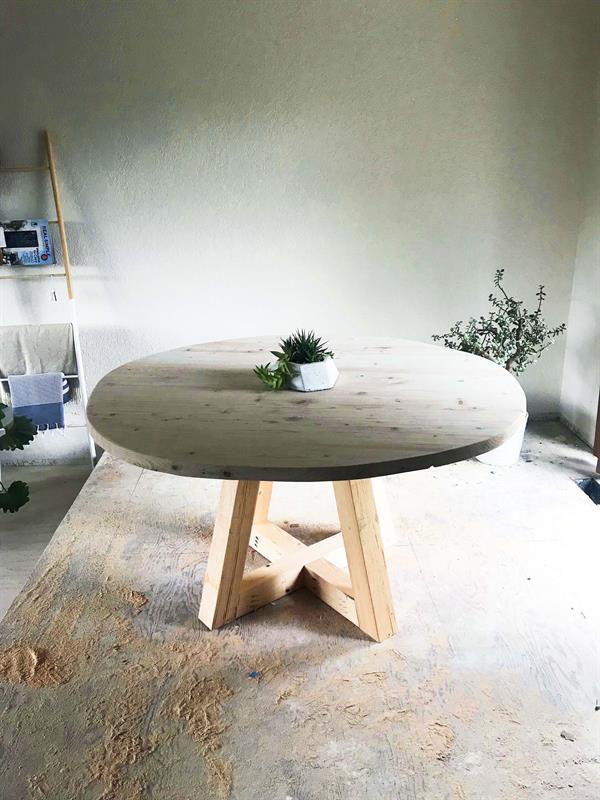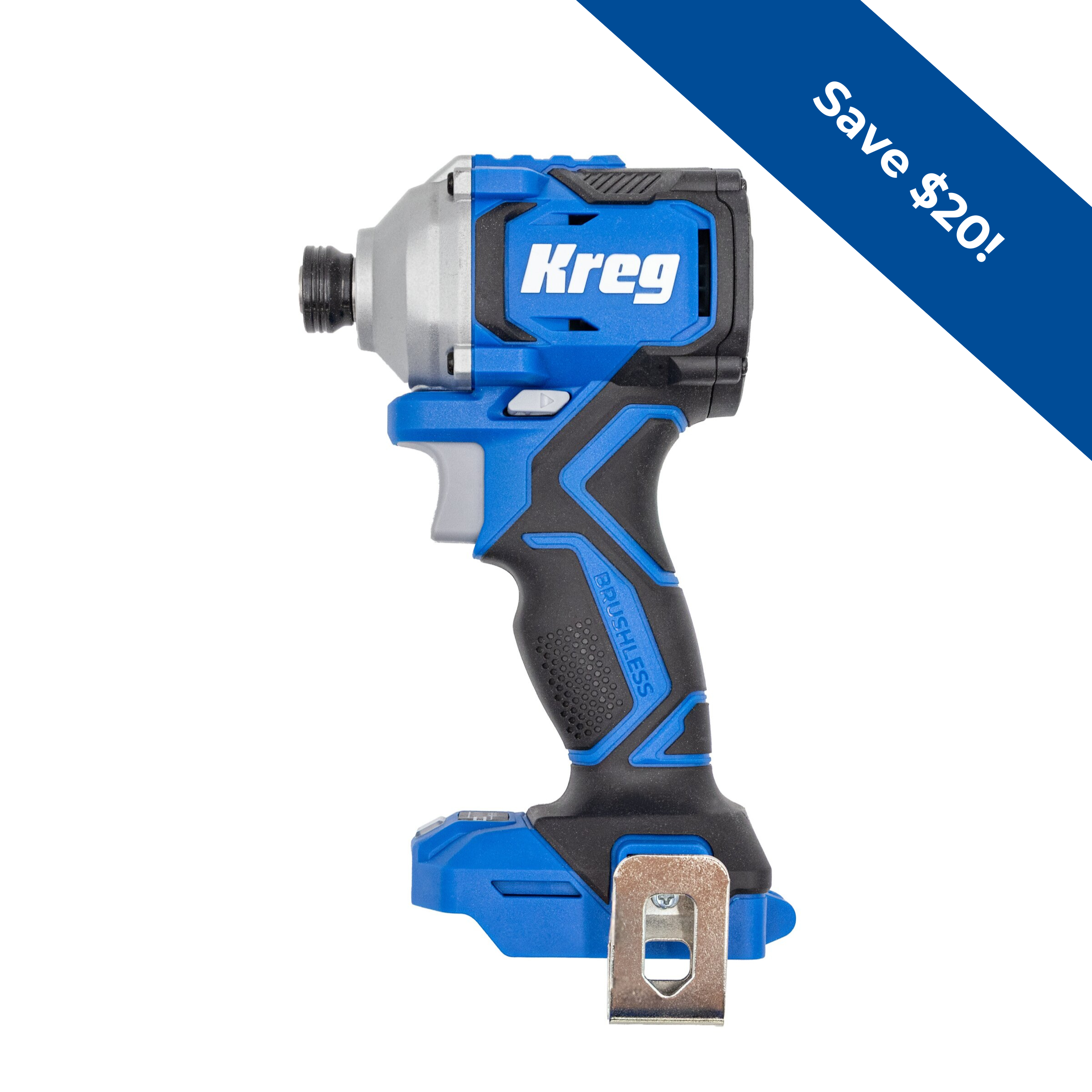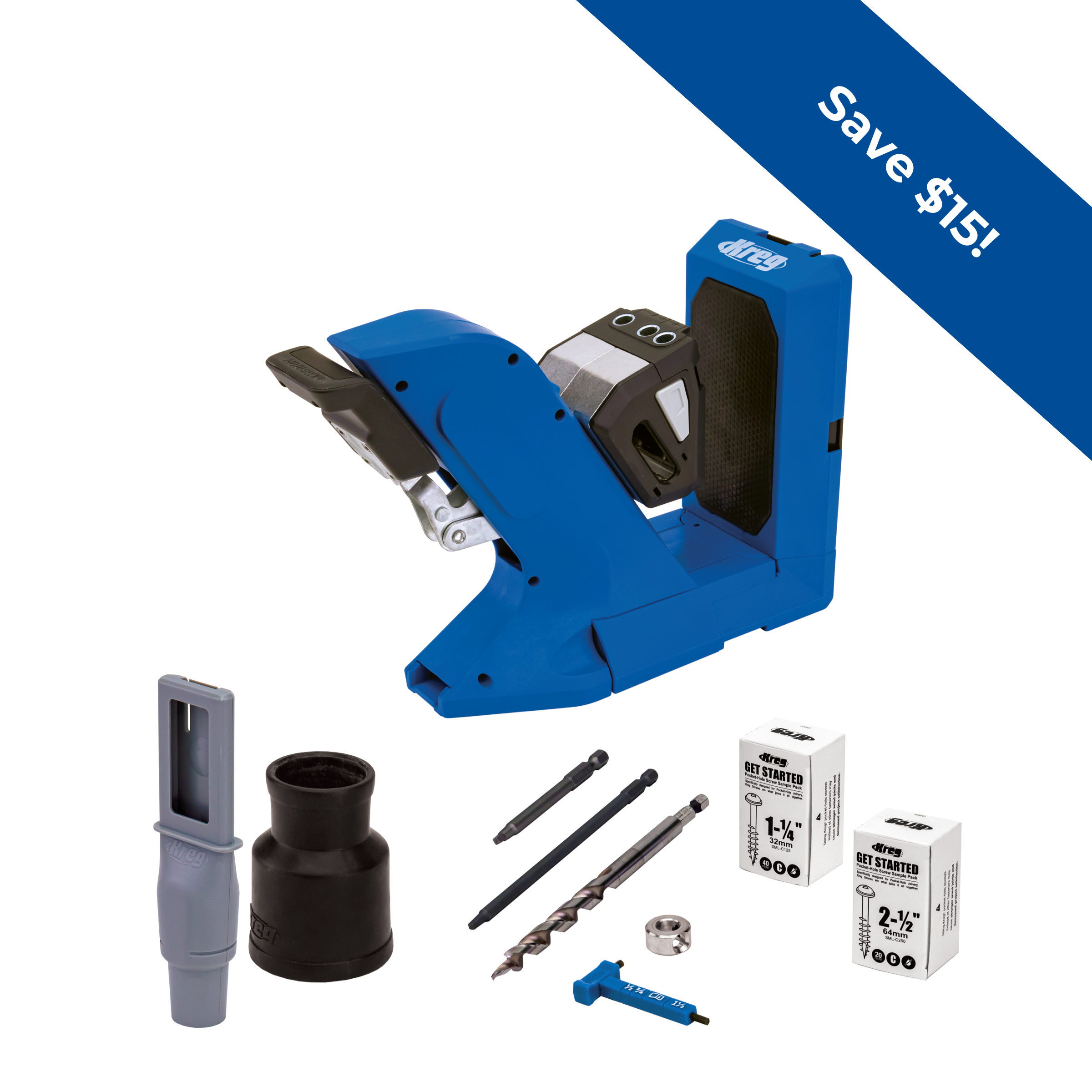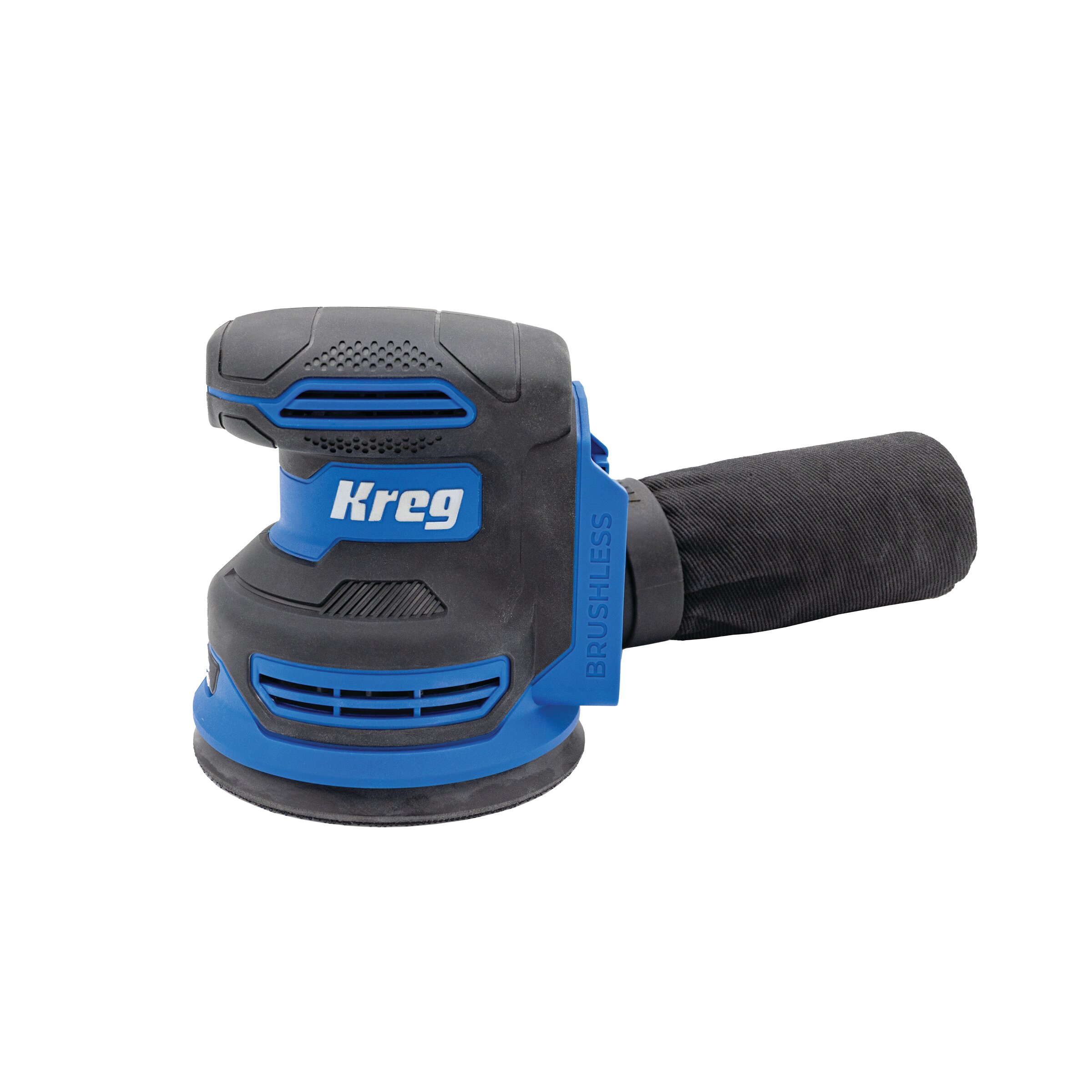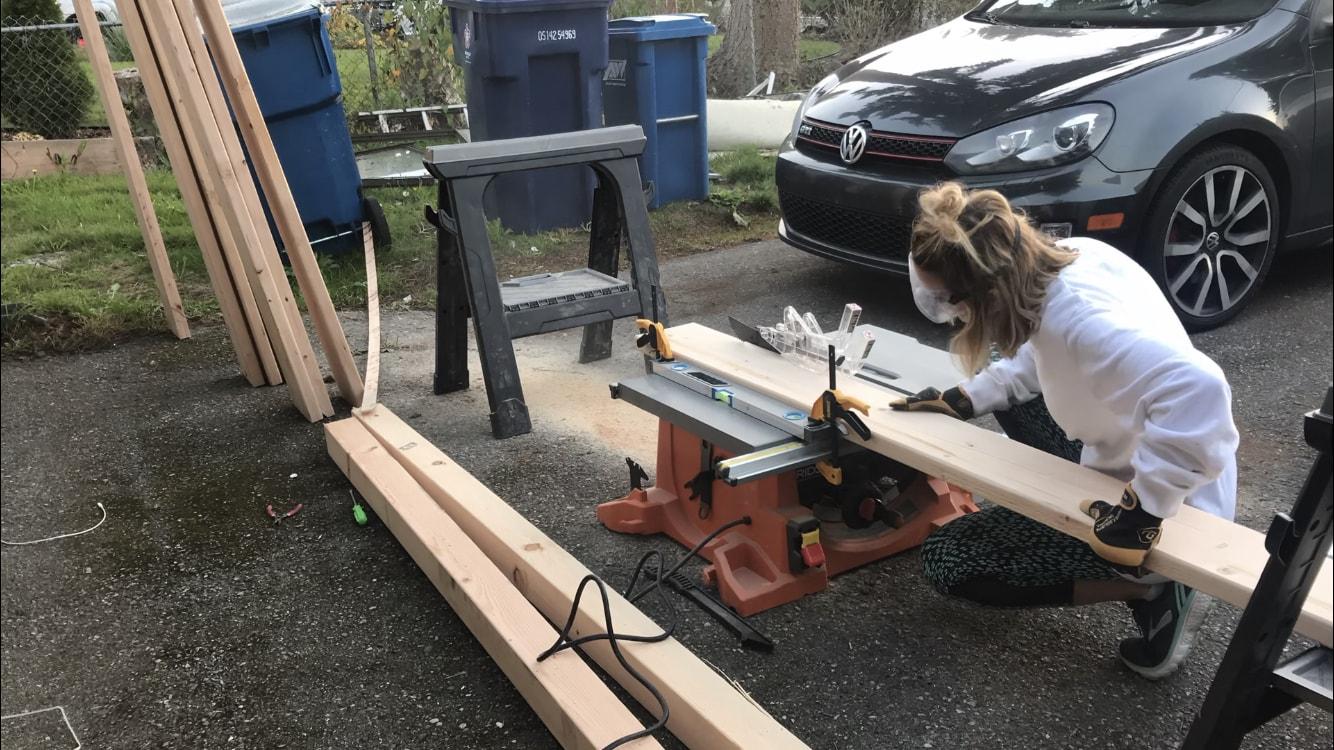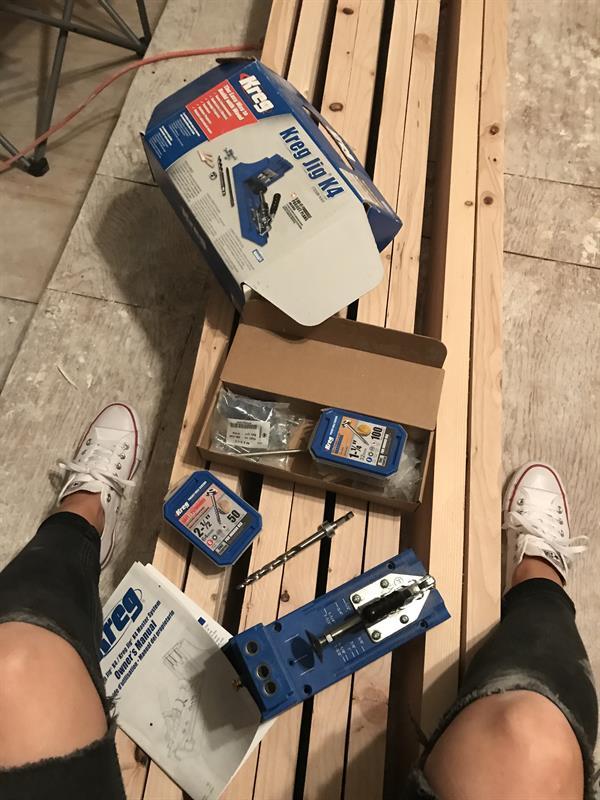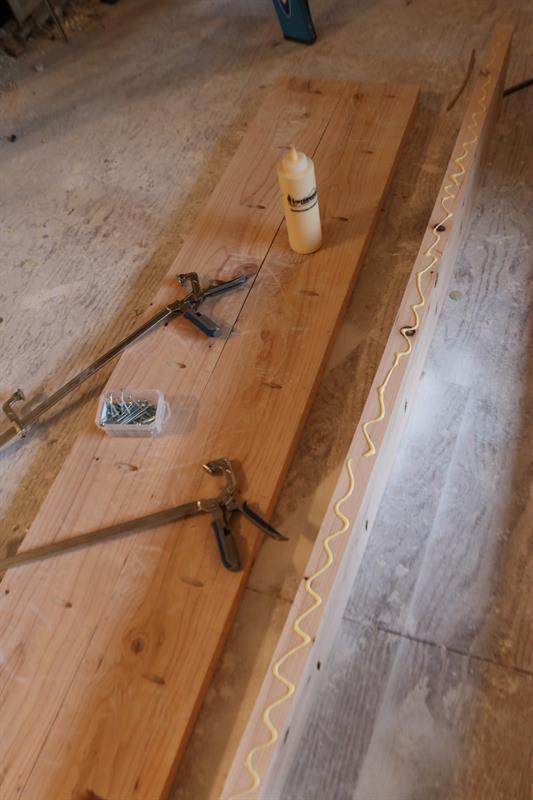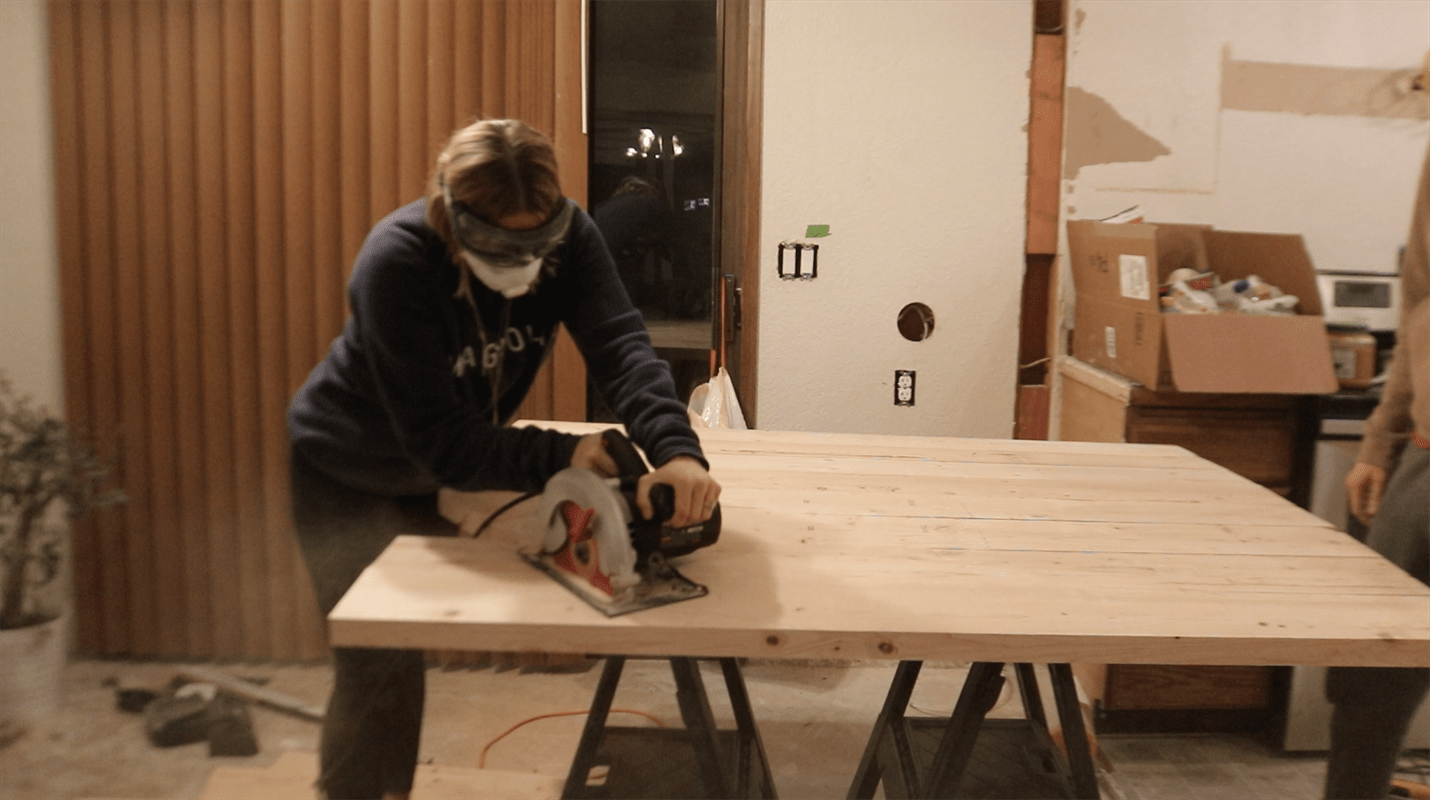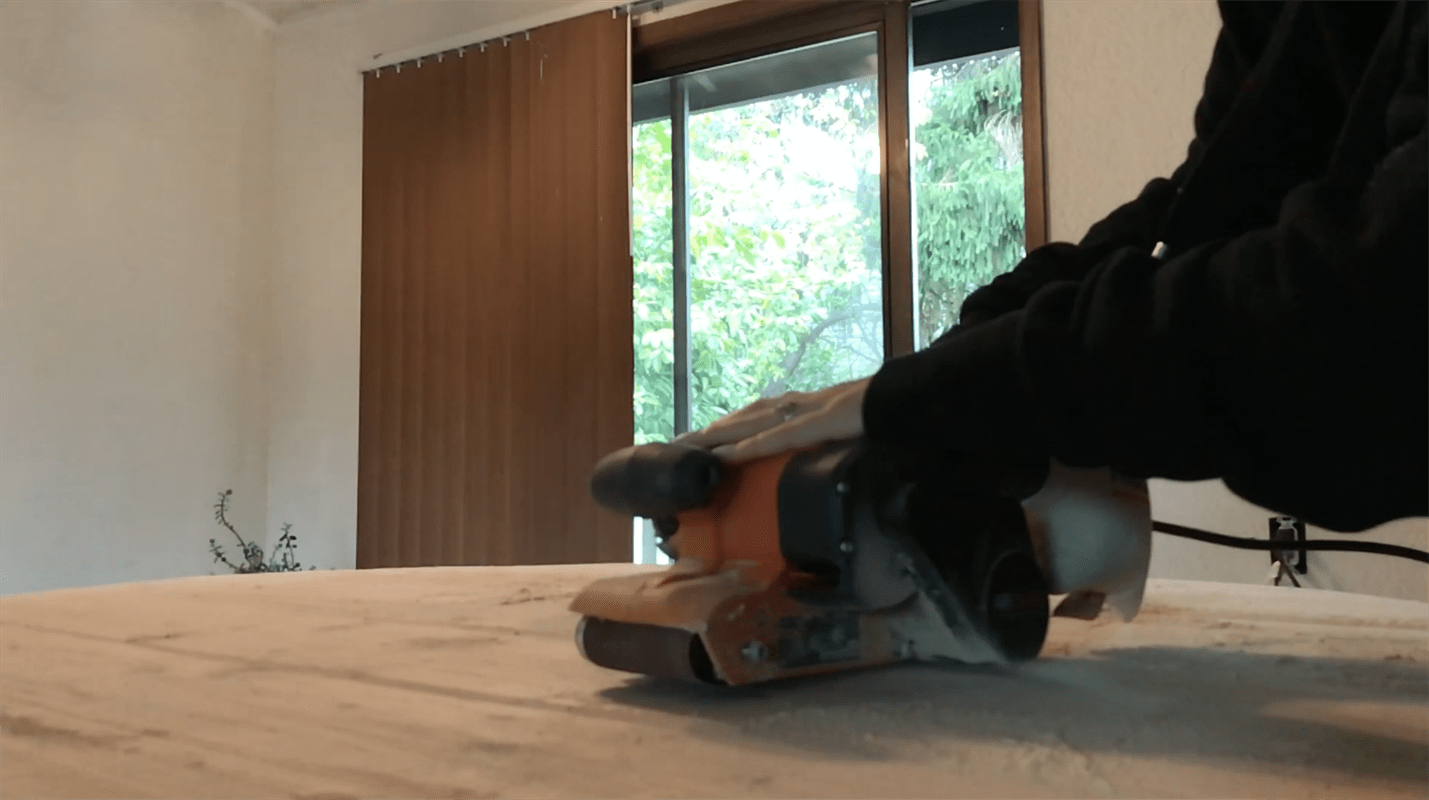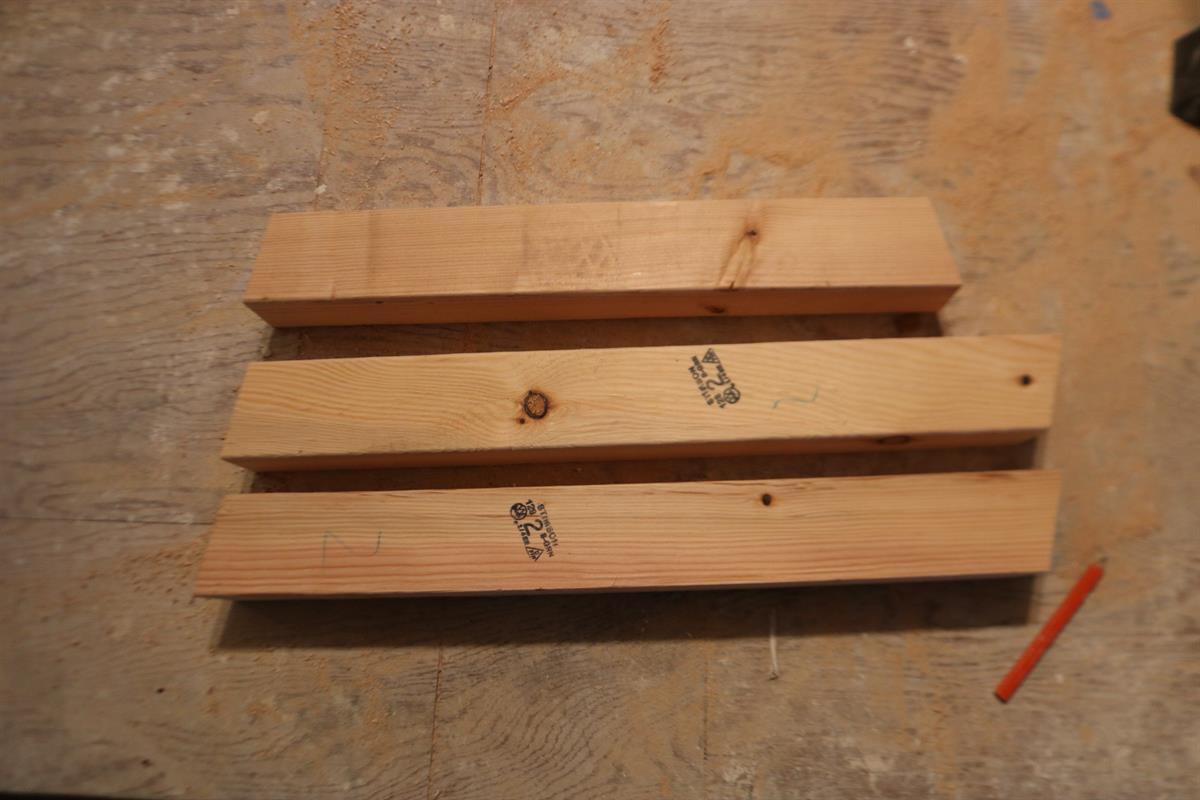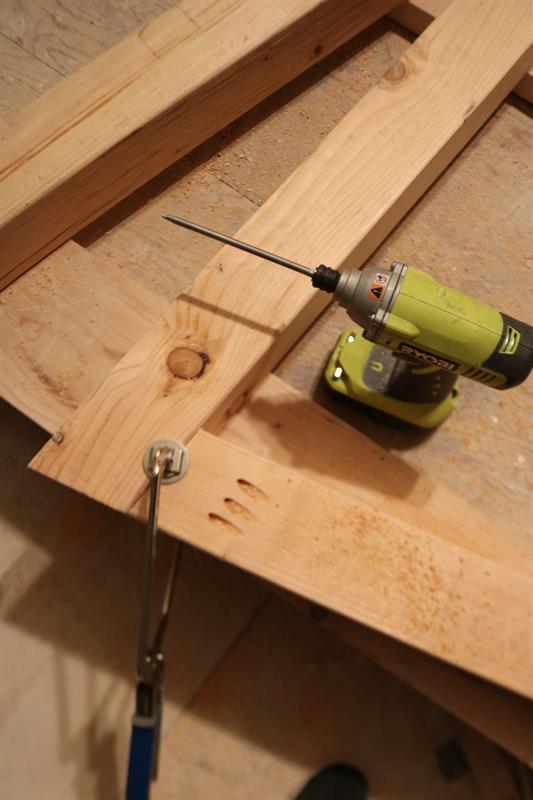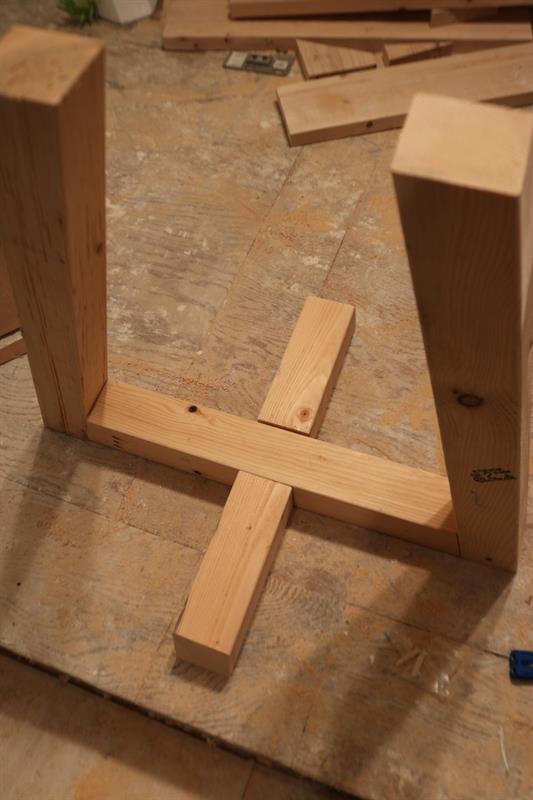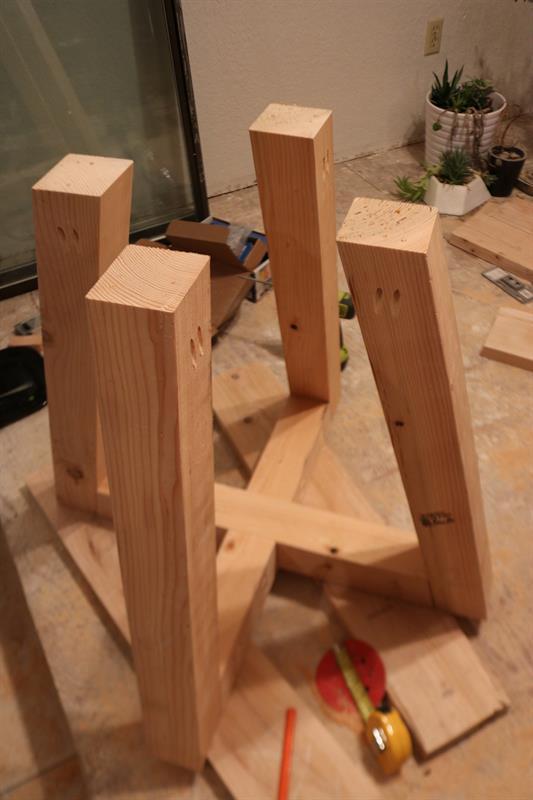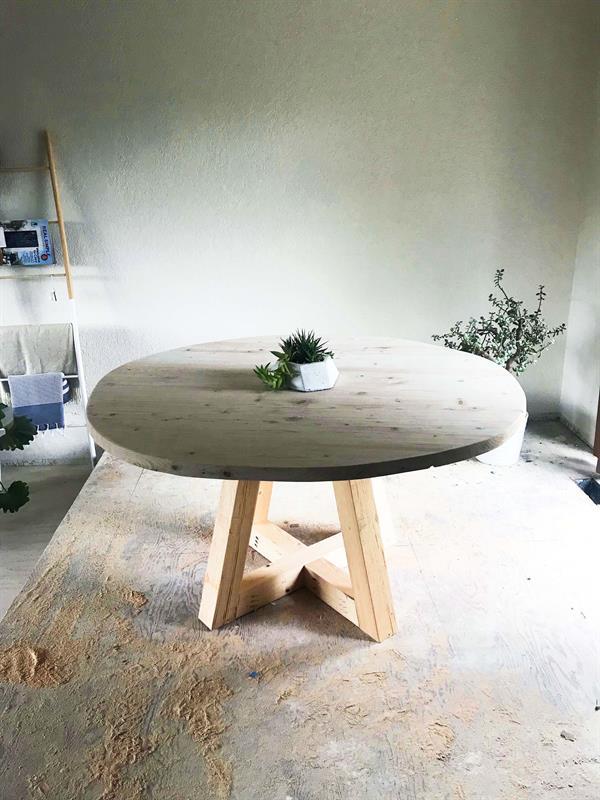How To Build a Dining Room Table – DIY Dining Room Table
By Seeking AlexiCreate your own circular dining table just in time for the holiday season with these instructions by SeekingAlexi of seekingalexi.com.
These plans are easily adjustable depending on your desired table size. Mine is 54" in diameter, which seats 5-6 chairs, comfortably.
Directions
-
Step 1. Trim Common Boards
Trim 1/4" off each length of your 2x8 boards using a table saw.
-
Step 2. Set up Kreg K4 jig
Set up your Kreg K4 jig system to the 1.5" setting.
-
Step 3. Assemble Boards
Assemble your boards together using wood glue, Kreg clamps, and 2.5" Kreg soft wood screws. Then, draw your desired circle size onto your assembled boards. My table top is 54" in diameter.
-
Step 4. Cut Table Top into Circle
After wood glue has dried, use a skil saw to cut as close to your lines as you can. It will be jagged, but we will smooth it out on the next step with a band saw.
-
Step 5. Sand Your Table top
First, sand the jagged edges of your table using a 60-80 grit to make your table perfectly circular.
Then, smooth your table top by first filling any gaps on your table top with wood filler, then sanding it until smooth. I used a 60 grit, then 80, then 120.
Depending on how you sand will change the final look of your table. You can skip sanding and scratch and "bang-up" your table instead if you want it to look more salvaged.
-
Step 6. Cut The Legs
Cut 4 parallelograms for the legs at 29.5" (or however tall you want your table) with 15 degree angles on each end.
Then, cut 2 trapezoids for the base beams at 26" (on the long edge) with 15 degree angles on each end.
-
Step 7. Assemble Base Part 1
Using a Kreg HD or R3 system, combine two legs to a base on the two outside edges.
-
Step 8. Assemble Base Part 2
Before you combine the next set of legs, first cut 3.5" out of the very middle of the last base piece as shown in the photo.
Then, add a table leg to each base half.
-
Step 9. Assemble Base Part 3
Attach each half from Part 2 to the rest of the base from Part 1, so your base is now all one piece.
-
Step 10. Attach Base to Table Top
Lastly, using the Kreg HD or R3 again, but with 2" screws this time, attach your table top to the base (making sure not to drill through the table top).
At this point you can paint, distress, stain, etc. to your table to your desired look!



